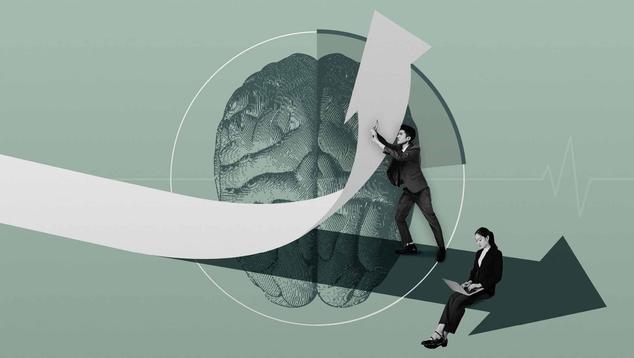Wellbeing in the workplace is an executive concern.
Gallup’s March 2024 survey of 151 Chief Human Resource Officers (CHROs) from large companies reveals that wellbeing ranks among the top organizational priorities this year for one in four CHROs (23%).
This follows U.S. adult mental health and emotional wellbeing dropping significantly in 2020 to a historic low and remaining there through our last recorded measurement in December of 2023.
Concerns about employee mental health have broadened discussions on employers’ roles in supporting employee wellbeing. In response, some employers have developed new employee value propositions to communicate how their organizations improve their employees’ wellbeing. Others have expanded resources through employee wellbeing initiatives and assistance programs.
Despite employers’ efforts, these changes have yet to make a difference in the workforce as a whole. The percentage of employees who strongly agree their organization cares about their overall wellbeing tied a record low of 21% in early 2024 and remains just above that mark.
For organizations, failing to deliver on promises to support employee wellbeing can disappoint and further frustrate employees. Employees may perceive these initiatives as empty words if they see no results, even when leaders do things to channel resources into supporting employee wellbeing, such as providing mental health services.
In the worst cases, this can feel like “carewashing,” where organizations face accusations of providing superficial support for workplace wellbeing while neglecting the root causes of burnout.
Closing the Gap on Wellbeing Strategy and Employee Experience
How can employers close the gap between their wellbeing strategies and employees’ experiences? Here are three actions leaders should focus on:
1. Assess your current systems and resources.
Many employers turn to their employee assistance programs (EAPs) for employee mental health support. According to the Bureau of Labor Statistics1, most large to midsized employers offer EAPs that provide various services related to mental health, work stress, financial planning, legal aid, dependent care, substance abuse, relationship issues and other wellbeing-related needs.
Taking a closer look at how EAPs affect employees, a March 2024 Gallup survey reveals that among employees who have used an EAP, 32% say it is “extremely helpful,” while 47% rate it as “somewhat helpful.” These findings, combined with common employee reports of frustration, indicate that while EAPs help people in need, they’re not a comprehensive solution.
Further, Gallup finds that communication and participation rates in these programs show significant room for improvement.
- Thirty-one percent of employees do not know if they have an EAP program or not.
- Among employees who know they have an EAP available, 81% say they’ve never used it.
This means that many employees are still unaware of their employers’ EAP, and most have never personally used the service. Improving communication and participation in existing workplace wellbeing programs are essential next steps for most organizations.
2. Expand your employee wellbeing strategy to cover all five elements of wellbeing.
Creating a culture of wellbeing requires a holistic approach that addresses the whole person. For example, physical health issues can affect finances, and workplace stress can affect relationships at home.
Gallup's comprehensive study of people in more than 150 countries revealed five universal, interconnected elements that shape our lives: career, social, physical, financial and community wellbeing. Employers can use these elements to design comprehensive wellbeing programs, activities and resources that get results.
Yet when asked if their employer is taking action on each of the five elements of wellbeing, between 6% and 15% of employees strongly agree that any one of the elements is being supported by their employer.
The good news is that while Gallup research shows that focusing on all five elements is vital, career wellbeing is particularly important to overall wellbeing and an easy starting place for employers to connect work and life. Rather than seeing work and wellbeing as competing priorities, employers should view work as one of the key ingredients of a meaningful life.
3. Integrate wellbeing into coaching conversations.
Managers serve as the primary connection between an employer and an employee. They are typically responsible for helping employees integrate work and life. When employees talk about wellbeing at work, it’s most often with their manager. However, there’s room for improvement. Only 36% of employees say they have talked to their manager or supervisor about their personal wellbeing, and conversations between coworkers are even less frequent (29%). Increasing the frequency of these discussions can show employees that their organization cares.
When it comes to discussing wellbeing, managers don’t need to be mental health experts. They can maintain professionalism while emphasizing the importance of wellbeing, encouraging the use of resources and benefits, facilitating activities focused on the five elements, and listening to employees about their personal lives.
Investing in Workplace Wellbeing Is Worth It
Wellbeing isn’t just an employee expectation; it’s foundational to sustainable employee performance. When employees strongly agree their organization cares about their overall wellbeing, they are:
- 4.4 times as likely to be engaged at work
- 7 times as likely to strongly agree they would recommend their organization as a great place to work
- 73% less likely to feel burned out at work very often or always
- 53% less likely to be watching for or actively seeking a new job
- 50% more likely to be thriving in life
Ultimately, a workplace culture that truly prioritizes employee wellbeing makes people feel cared about and tangibly improves their lives. In these organizations, wellbeing becomes a priority people talk about, encourage and do together regularly -- from leaders and managers all the way to the frontline.
Make employee wellbeing a top priority.
- Learn more about how to improve employee wellbeing and why it matters.
- Follow global data on employee wellbeing to learn what workers share about how they feel.
- Discover the cost of ineffective employee wellbeing solutions and explore how Gallup can help you build a strategy that allows employees and organizations to thrive.
Footnotes
[1] Attridge, M. (2022). Profile of Small Employers in the United States and the Importance of Employee Assistance Programs During the COVID-19 Pandemic. American journal of health promotion: AJHP, 36(7), 1229-1236.



